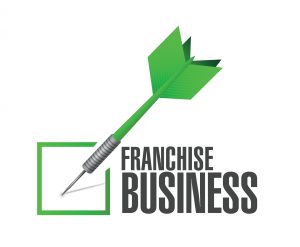
Q. Kindly give our readers an introduction to your business. Please include what your business is all about, in which city you are located and if you have offices in multiple locations/ cities.
A. Thrive Future is all about empowering organisations, teams and individuals to deliver using their full potential. We use a unique combination of approaches to deliver long-term and sustainable improvements to results, performance, engagement, collaboration and productivity.
Being bold, stepping out of the current development paradigm, and doing something different, more edgy and unexpected is our unique offering. We apply tools and approaches from across the industry and combine them in an innovative way, which allows us to design bespoke solutions for each of our clients, delivering a significant and sustainable increase on the bottom line. Clients have initially found what we do hard to understand. Lots of delegates say they’ve never experienced anything like what we do before. Once they get involved it’s fabulous to see the true transformation of people lives, and capability and a magical vibe in the organisation develops. Even writing about it sounds odd!! I guess you would say that by working at the heart of the individual, we deliver compelling results at the team and organisational level. Simply put, people deliver to their full and often unrecognised potential to create collaborative teams, which deliver for the organisation.
Our office is located about 5 minutes from junction 6 of the M25, which is near the Gatwick turnoff. It’s a great location for getting into London or abroad with clients flying in to Gatwick. Most of our time is spent at client sites so home is often a hotel. Uniquely, we build close relationships with our clients, its not just about turning up at 0900 and delivering a programme, its about total commitment, allowing us to fully understand and track the changing and dynamic needs of the client. There’s always something to do well, something that needs our attention and commitment. We want Thrive Future’s work to be synonymous with a great personal experience and achieving compelling results.
Q. Kindly give us a brief description about yourself (it should include your brief educational or entrepreneurial background and list some of your major achievements).
A. If you asked my friends they would tell you I’m always learning something to do with my work. I’ve always known that the work which Thrive Future delivers is essential and that I could add something new, effective and sustainable if I just kept on working. I’ve grafted for 25 years to learn my trade. It’s been hard work, studying and testing each part of what we do. In a way I feel like Thrive Future are the custodians of something precious because this work creates incredible transformation, but that never belongs to us, in the end it belongs to our clients. My belief, commitment and time has created an approach that transforms people, and business so that they can become all that they can be. The change becomes an energy of it’s own and you see people grasp the mantle and take things forward. It’s a bit like having kids that grow up and leave home, they can do it for themselves.
As well as working I have brought up a great family so I’m getting plenty of practice at letting go and seeing them shine.
Q. What inspired you to (start a new business venture) or (to make significant changes in an existing business)? How did the idea for your business come about?
A. The idea for the business initially came from feeling a level of frustration when I was working in a corporate environment. I loved many aspects of that work and learnt so much but I knew that there was so much more we could be doing. I found corporate culture constraining and I needed more time to continue my training, and opportunities to innovate the ideas I sensed would create a positive contribution to supporting organisations to deal with change, develop high performing cultures and achieve business results.
I’d love to say that I had the courage to chuck my secure job in and take the big bold step of starting my own business. I wanted to but I went through all the fear such a step creates. Circumstances overtook me. My brother had died rather tragically and after two murder trials related to his death, I went through a period of trauma. When I went back to my role after a couple of short weeks recuperation I was shocked to be targeted with treatment that I now view with incomprehension. The mismatch in values between that organisation and myself became very stark and in a moment of clarity I walked away from my role. It was a scary time as I was a single mother of three children and suddenly had no job. I feel that my network and the universe conspired for me. I added a dash of standing up for what I believed in, and eleven years ago, Thrive Future was born.
I am passionate about work, business, results, getting the job done and we do it in a great way with high levels of collaboration, engagement, values and fun. I think it is a tragedy that so many work places don’t have that vibe that allows people to bring the best of themselves to their work. It’s criminal that the productivity scores for our country have been so low for so long. Productivity is a function of our psychology and those scores speak volumes about what we are, and are not doing in our workplaces in order to enable employees to achieve their full potential After all, why would you pay for something and then only get 80% of it, it makes no sense. I wanted to do something about this and through Thrive Future we do, empowering people to deliver demanding organisational goals.

Q. What three pieces of advice would you give to budding entrepreneurs?
A. My three pieces of advice are:
It’s really important to have a good network of people around you, skilled people who can help you with the things you’re not so good at. I’ve made a few mistakes in who and what I trusted over the years but it was worth it to find the people I do trust and who bring their skills to my endeavours. You just can’t do it all alone so find your ‘tribe’. It’s all in the relationship.
I’d say do what you love because you’ll be working all hours of the day and night. Do something that feels like a hobby.
Spend time with your friends, the ones you can be honest with and who love you. They will reenergise you when you need it.
Q. What would you say are the top three skills needed to be a successful entrepreneur?
A. Integrity is very important to me. It’s a foundation to build everything else from.
Self-motivation, nobody is going to do it for you so you need to be able to keep going.
Passion for what you do. People love passion, and it’s also what gets you over, and round the obstacles you will face.
Q. How many hours do you work a day on average?
A. I work a lot of hours in a week, sometimes it feels like all I do is work but I do like the fact that I have autonomy in how I do my hours. It’s really helped me to raise my family, accommodate huge changes and allow time for on-going training and development. I use that mantra ‘Do what you love so it never feels like work’. I love my work passionately. I know I literally change lives, businesses and outcomes for the better every day and that feels amazing.
Q. To what do you most attribute your success?
A. In part my success is down to having had a very challenging life. I could see a picture of life that I didn’t want. I chose very early on in my life to overcome my experiences, be loving and give to others what I had not been given. I now realise my purpose in life, and work, is to develop peace and power in individuals, teams and organisations. That may sound like an odd comment but by peace I mean that people are free of learnt limitations and fear. We all have so much more potential that we actually use. When this potential is freed up it is astounding the changes that occur in individuals, teams and organisations. Power comes by giving people all kinds of knowledge, skills and abilities. I still find it astonishing what you can create with people with the methodologies I’ve been lucky enough to find and synthesise into the Thrive Future approach.
Q. How do you go about marketing your business? What has been your most successful form of marketing?
A. The most successful marketing tool is word of mouth without a doubt but it is also essential to have the right media presence, I’ve been slow to get this aspect of my organisation sorted, this is one of the mistakes I made, choosing the wrong people to work with. I’m starting to learn the value of having the right support in this area.
Q. Where did your organizations funding/capital come from and how did you go about getting it? How did you obtain investors for your venture?
A. I was fortunate that I didn’t need lots of money up front. What I had invested in heavily before I started my business was extensive, high quality training and development, so that I had built my skills and felt very confident that I had something valuable to offer. At the time I did that training because I was following my passion but in retrospect I couldn’t have done what I’ve done without that hard work and preparation. I’m now a huge advocate of continuous learning. It’s really been the insurance in my life, when you have skills you can weather life’s challenges.
Q. What is the best way to achieve long-term success?
A. I think long-term success is focussing on always doing the best job you can and working from a good intention that is in your clients best interest. Nobody can be perfect and sometimes things go wrong but people know if they can trust you. Also be prepared to walk away if something doesn’t feel right or your values are being compromised. I’ve learnt that in the end good always wins; it might just take longer sometimes.
Q. Where you see yourself and your business in 5 – 10 years?
A. I have worked very hard to achieve my ambition to develop an approach to development that offers something new and innovative, that delivers sustainable business results. In 5 years time I want to have communicated the huge implications and benefits of the approach within the market. The approach speaks to the productivity challenge, but also to a wider question of people having quality of life. It’s what I have always been passionate about so I expect it to be an amazing few years.

Q. Excluding yours, what company or business do you admire the most?
A. Apart from my company I admire the companies I work with. When I’m employed I know that those companies truly care about business and their teams. I also know buying my product or approach is challenging. I always know we will have a great experience, and deliver our goals but when you are buying innovation it is a leap of faith. It’s a great responsibility to have a clients reputation in my hands, one I take very seriously. Reward that trust is such an important part of what we do.
Recommended Questions –
Q. How important have good employees been to your success?
A. I don’t have employees but having good people to work with is essential. People really are the greatest gift. We work with a small group of associates who have the knowledge and skills to deliver our approach to a consistent level.
Q. How long do you stick with an idea before giving up?
A. If I believe in something I am relentless. I started working towards my business 25 years ago. I’ve been training relentlessly all that time. I’ve faced lots of challenges, fears and made a massive personal investment for everything I am and have. I don’t intend to give up, ever.
Q. What motivates you?
A. People motivate me. I know what pain feels like, that change is possible and that business done well is one of the best feelings you can have. I love working in an arena where I can make a huge difference, to organisations, business results and people lives.
Q. What are your ideals?
A. Love always wins.
Q. How do you generate new ideas?
A. I’m dyslexic and this means I have an ability to think out of the box. People used to say to me that they would invite me to meetings because I’d think of the things nobody else had considered. I didn’t realise that it is a skill as I thought everybody thinks like that.
Q. How do you define success?
A. Success for me is knowing I’m living my dreams and achieving my goals. I also have a weekly scorecard of the lives I’ve been able to change for the better, It sounds like an odd thing to do but when I’m giving so much of myself to my work it’s a simple way of seeing the value of my efforts. I always think of the story on the beach where the man is throwing the starfish back into the water saying ‘made a difference to that one’.
Success is also being able to look after my family, being a good mum, and now Nana. I want to be a role model to my children and family, for them to see that community, care and love are about how to contribute to those around you, and just how fulfilling that is.
Q. How do you build a successful customer base?
A. All my work has been through word of mouth. There are other ways to do it but you’d need to ask someone else about them. In the end I just do what I do well.

Q. What is your favourite aspect of being an entrepreneur?
A. Being able to do my job in a way that I know offers sustainable positive change. I can do the right thing for clients. I can put people and results first, not anything else.
Q. What has been your most satisfying moment in business?
A. My first major client had a review meeting. I’d got his three worst performing teams, of 250 per team, in a 26,000 people business from the bottom of the performance chart, to the top in a year by doing the right thing for the people and the business. My client didn’t have to defend employing me as the results spoke for themselves. The best thing was not letting him down, and I found out that my approach works. I think I was shocked, even though I knew we could do it. I’ll always be grateful for his trust in us.
Q. What do you feel is the major difference between entrepreneurs and those who work for someone else?
A. They know when payday is!! Never underestimate the security of payday. It’s taken years to feel confident around that.
Q. What kind of culture exists in your organization? How did you establish this tone and why did you institute this particular type of culture?
A. Going the extra mile is at the core. Loving and caring for people. A splash of chaos, which my clients are very accepting of. At the core of it I’m an artist of some sort. I get everything done and it looks great in the end but it’s an emergent process.
Q. In one word, characterize your life as an entrepreneur.
A. Transformation
Q. If you had the chance to start your career over again, what would you do differently?
A. Do it all again but with more confidence.
Q. How has being an entrepreneur affected your family life?
A. I had more time with them is some ways, and less in others. My kids have seen me work hard and I’m proud of who they are. They are all different but they are all contributors and that is important to me. My job also allowed me to slow down to support my son who has Asperger’s syndrome, and to unofficially adopt my ‘daughter’ who’s mum and dad died when she was a teenager. She needed us, so for a time I slowed down to help them both. They are both fabulous now and doing very well.
Q. What is your greatest fear, and how do you manage fear?
A. Keeping a roof over our heads was my biggest fear initially. It was hard to manage, as I was a single mum when I set out. I think I just worked hard and did what I believed in, which means I just kept going.
Q. How did you decide on the location for your business?
A. It was dictated by my home and the children’s lives. We are close to London and Gatwick so it’s a great location. I love being near the countryside and walking my dogs to reenergise. I love where I work and live, although I travel a lot. It’s a lovely place to come home to.

Q. Do you believe there is some sort of pattern or formula to becoming a successful entrepreneur?
A. Success to me is about doing the right thing. It’s not about money or status, it’s knowing I did the right thing for the client. That is what matters to me.
Q. If you could talk to one person from history, who would it be and why?
A. Martin Luther King. He must have had times of great fear and he kept going. I’ve struggled with fear, although I have been bold. I’d love to know how he lived through his experiences.
Q. Who has been your greatest inspiration?
A. My teacher who loved me when I couldn’t read, when I was 10. His name was Alan Bates and his love got me reading in a year. I learned to love everything about education and learning and I found him in my 40’s to say thank you.
Q. What book has inspired you the most? (OR what is your favourite book?)
A. A Way of Being by Carl Rogers, it’s all about who you are. Who you are can heal other people lives. I am always focussing on business results, because without results no business is sustainable. I never stop focussing on the people either because paying attention to people is the key to change. I will never forget those people, and leaders who paid attention to me. Their shining example led me to do my work and know that change really is possible. One of these people was Sir Peter Imbert, the former commissioner of the Metropolitan police. An amazing man I was lucky enough o speak to for 30 minutes when I was a young 20 year old new police recruit. His impact on me has lasted 30 years. He was, and remains an inspiration. I also wrote to him in my 40’s to say thank you.
Q. What are some of the biggest mistakes you’ve made?
A. Not being fully aware of the impact of the trauma in my life. I was an angry young thing at times. Behind it I was trying to be a warrior for people and doing the right thing but I’m not sure it always looked that elegant.
I also made the mistake of being caught out by a business intent on making money rather than delivering the service they said they offered. I got my fingers burnt but I learnt a lesson and we all make some mistakes. I’d never want my business to be known for over promising and under delivering.
Q. How can you prevent mistakes or do damage control?
A. I think some mistakes are inevitable, its how you recover that matters. Doing the right thing is core to my business. I think people know if you have good intentions and are trust worthy and in that environment of service a mistake is just a mistake.
I did once refer a client to someone else to do a piece of work I wasn’t qualified to do myself. They had always been a very reliable source of support to my business. For some reason that piece of work was handled badly. Thankfully the client came back to me and told me. My commitment to my client was to out that right. It meant I invested heavily in the piece of training myself, went off and qualified. I then redid that piece of work myself. The outcomes for that client were fabulous in the end. The training I invested in means that my company can now innovate in a way that wouldn’t have been possible without it so it was a great outcome for me but it cost thousands of pounds and a lot of work to correct that mistake.
Q. What are your hobbies? What do you do in your non-work time?
A. My biggest passion has always been learning about people and change. I’ve trained in so many things including relationship therapy and all kinds of learning and travelled the world to work with the best people. All of it is relevant in my day job. You wouldn’t believe the issues I can come across in a day and having a proper understanding of issues means I can handle most situations.
I also love running and weight lifting, but I had time off after an operation so I’m now clawing my way back very slowly to some kind of activity.
My newest and best activity is being a Nana to my grandson. He gives me an opportunity to play and be his buddy.

Q. What makes you happy?
A. Living with incredible violence and cruelty in my childhood means I never take my family for granted. Making a happy family gives me great pleasure as does using my potential to give other people the chance to achieve theirs.
A simple thing that makes me happy is growing Begonias. I just love the summer and watching them grow.
Q. What sacrifices have you had to make to be a successful entrepreneur?
A. You sacrifice the security of knowing when payday is. That was the hardest thing for me. That tapped into the fear I experienced as a child and I fond it really hard. I was taught I wasn’t good enough so it was hard to believe that I had something to offer, even though on another level I knew I had something unique, powerful and wonderful that could create amazing shifts for organisations, teams and individuals. The process of developing my own business as been all about developing myself too.
Q. If you were conducting this interview, what question would you ask?
A. I’d ask the question – How did you know you had something unique to offer. The answer would be:
I watched some of the aftermath of the Lockerbie disaster unfold within the police service. The body recovery teams were very traumatised and the training team, who at the time were training me to be a trainer, were committed to helping them recover.
I was traumatised myself in my childhood so they were looking into something that was an issue for me. My stepfather had tried to murder me when I was 5 and I’d lived with him for years after (sounds like make believe but is absolutely true).
When the training team talked about trauma I knew what they were talking about. It was like being involved in experiential research. I could evaluate some of what they were saying. I knew that they knew they had some missing tools. I also knew how my trauma was impacting on my performance as a young police officer.
So on one hand I knew there’s was a missing tool and on the other I knew that experience affects how you feel, and that drives your behaviour, which then impacts on your performance. I knew back then that I would find the tool and approach to solve the issue of long-term sustainable high performance. I wasn’t giving up until I did. My next dream is fulfil is to draw it all my learning together in a doctorate, but I’ve been too busy working to sort that out yet.
